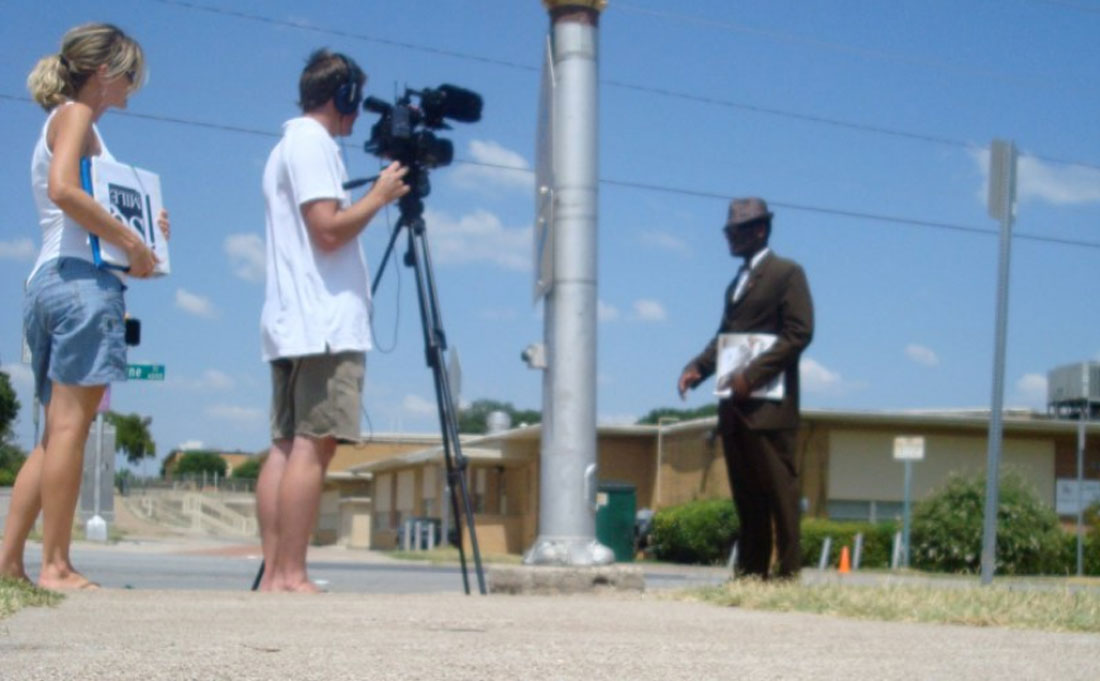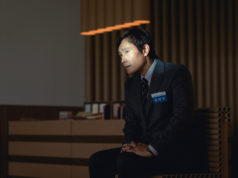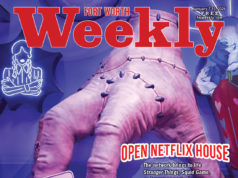Growing up in small-town East Texas, Betsy Crum watched a lot of television. And like many who were glued to the tube at an impressionable age, she was confused by the discrepancy between the lives she saw portrayed onscreen and the comparatively messy one she was living. All of the characters on her favorite shows were happy, with tidy families and perfect lives; she naturally concluded that there must be “some secret to being a functional, successful human being,” she said.
As an adult, she undoes the miseducation of her youth by producing documentaries for the small screen and internet with her husband, Carl Crum. And from their Emmy-winning series of documentary shorts, One Square Mile, to their current gig with Women and Girls Lead, a public television initiative, the Crums are using the same medium to expose their own children to real people and real everyday life.
Women and Girls Lead is a campaign led by Independent Television Services (ITVS), an organization that develops and distributes content for public television. ITVS focuses on national broadcasts of feature-length documentaries and mini-series as well as partnerships with local stations, which is where Carl and Betsy come in. Since last fall, the Crums have been producing a series of portraits of women in leadership roles, the first of which, made for Austin’s public television station KLRU, aired in March. The subjects “either overcame adversity or are overcoming it,” Betsy said. “All of the women have made an impact [on] the lives of others.”
The Austin batch includes profiles of women like Beverly Kearney, track coach at the University of Texas; the proprietors behind local food-truck institution Crepe Happy; and the founder of the American Widow Project, a nonprofit support group and resource clearinghouse for military widows. Each video is only a few minutes long and is narrated by the subjects themselves, with shots illustrating the women at work and carrying out their daily lives. “You feel like you’re having a conversation with them,” Betsy said.
The intimacy on display in the Crums’ documentaries might seem at first glance to be the only connecting thread between One Square Mile and the Women and Girls Lead videos. In the former project, as its title suggests, the filmmakers honed in on a given square mile in cities and towns across the United States, from Fort Worth’s Como neighborhood to obscure places like Barrow, Alaska. Composed of seamlessly edited interview clips and micro-vignettes, these hyper-local portraits often trace fault lines in American society such as race and sexuality while celebrating everyday life. With Women and Girls Lead, the Crums have zoomed in, focusing on only a handful of individuals.
But the two projects have more in common than that defining conversational feel. For starters, the process the Crums use is one they perfected over the course of producing nine installments of One Square Mile. It starts with pre-production: heavy research on the communities and the potential interview subjects, gaining access and clearances, and scheduling the shoots. This is work that Betsy has gradually taken over and can conduct either from the couple’s TCU-area home or their nearby studio and office on the Near South Side.
Next come the shoots, which Carl handles on his own these days. Flanked by two production assistants who provide on-the-ground support, he conducts the interviews to produce video that is as intimate and conversational as possible. (He said he even once experimented with a homemade Interrotron, the teleprompter-like system of cameras and mirrors that master filmmaker Errol Morris uses on his interviews. Carl jerry-rigged his own from half-mirrored glass and a cheap webcam. He ultimately ditched the device in favor of more traditional interviewing techniques.) After the shoots, Carl watches and edits and watches and edits before handing over the whittled-down results to Betsy. “She’ll see a story structure,” Carl said. “I’m face-deep having just shot and edited it, and I assume the audience knows what I do.”
With Betsy’s feedback, Carl constructs a more coherent narrative. It’s an arrangement that hasn’t changed from one project to the next.
But all of that –– from the production process to the overall tone of the films –– wasn’t just perfected on One Square Mile and carried over to Women and Girls Lead. It’s what got them the new gig. Looking for distribution opportunities for OSM, Betsy sent out “thousands of e-mails,” Carl said, and managed to get the attention of the head of ITVS. “ITVS liked the format, style, and flow of One Square Mile,” Betsy said. “They wanted us to use our approach for their project.”
Instead of seeking new funds to distribute their earlier work, the Crums were essentially hired for the Women and Girls Lead initiative. In addition to the seven videos of Austin women, the Crums have produced new segments for public television stations in Kansas City and Miami and this summer will work on more for Las Vegas and Rochester, New York.
When they shot the Kansas City segments in February, Betsy and Carl took their daughters along. Their older daughter, Caya, is practically a film veteran by now. Betsy is hoping to ensure that, rather than the unrealistic messages she received from television as a kid, the young Crums will receive from their parents’ work a sense of curiosity and an ease with and respect for people, from all walks of life. “I don’t feel like I had the opportunity to see the things that they have seen –– and will see,” Betsy said.
But while their work may have valuable lessons for their kids, ultimately it satisfies an itch that both the adults have. “We love talking to people,” Carl said. “Whether it’s One Square Mile or Women and Girls Lead, it’s about people. Our job gives us an excuse to talk to people.”













Very nice article. It is nice to hear about a organization like Women and Girls Lead Initiative. I am in Kansas and cool that they passed through Kansas City..